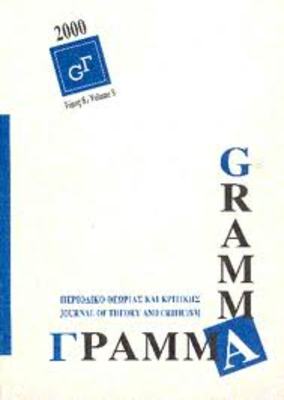The horror of self-reflection : writing, cancer, and terrorism in Philip Roth’s American Pastoral
Part of : Γράμμα : περιοδικό θεωρίας και κριτικής ; Vol.16, No.1, 2008, pages 235-249
Issue:
Pages:
235-249
Section Title:
Illness, death, and catastrophe
Author:
Abstract:
This essay provides a re-reading of the relationship between Philip Roth's American Pastoral (1997) and the canonical texts of the American Renaissance. It focuses on a selection of well known passages, to suggest the ways in which Roth borrows the form of Nathaniel Hawthorne's work, the content of Herman Melville's and the language of Walt Whitman's. Rather than accepting the (until recently) conventional view of these artists as offering unifying definitions of a hermetically- sealed national identity, the essay reads American Pastoral as a reenactment of the sense of crisis that permeates the work of Ralph Waldo Emerson, Hawthorne, and Melville, and argues that the conflict that Roth depicts tearing apart the post-World War II United States can be viewed as an inevitable consequence even of the more optimistic visions proffered by Whitman. Noting the manner in which Roth revisits the American Renaissance link of body and nation, the essay reads cancer as a metaphor for the condition of the nation in late-industrial America.
Subject:
Subject (LC):
Notes:
Revisiting crisis / reflecting on conflict: American literary interpretations from World War II to Ground Zero.Περιέχει βιβλιογραφία




